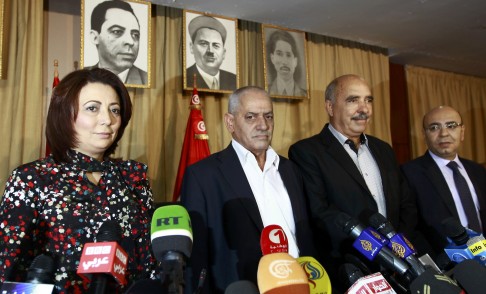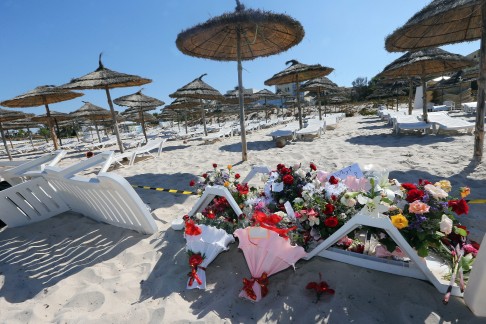
Tunisian mediators win Nobel Peace Prize for building democracy after revolution
The country's National Dialogue Quartet won for its contribution after the Jasmine Revolution in 2011

A Tunisian democracy group won the Nobel Peace Prize on Friday for its contributions to the first and most successful Arab Spring movement.
The Norwegian Nobel Committee cited the Tunisian National Dialogue Quartet “for its decisive contribution to the building of a pluralistic democracy” in the North African country following its 2011 revolution.
“It established an alternative, peaceful political process at a time when the country was on the brink of civil war,” the committee said in its citation.

The prize is a huge victory for small Tunisia, whose young and still shaky democracy suffered two extremist attacks this year that killed 60 people and devastated the tourism industry.
The National Dialogue Quartet is made up of four key organisations in Tunisian civil society: the Tunisian General Labour Union; the Tunisian Confederation of Industry, Trade and Handicrafts; the Tunisian Human Rights League; and the Tunisian Order of Lawyers.
“The Nobel Peace Prize for 2015 is awarded to this Quartet, not to the four individual organisations as such,” the committee said.

The EU hailed the decision, saying the mediators had shown the troubled North Africa and Middle East a democratic path out of its turmoil.
“The Nobel Peace Prize to the National Dialogue Quartet in Tunisia shows the way out of the crises in the region: national unity and democracy,” EU foreign policy chief Federica Mogherini tweeted.
Houcine Abassi, the leader of the Tunisian General Labour Union, told The Associated Press he was “overwhelmed” by the award.
“It’s a prize that crowns more than two years of efforts deployed by the quartet when the country was in danger on all fronts,” he said.
The decision came as a surprise to many, with speculation having focused on Europe’s migrant crisis or the Iran-US nuclear deal in July.
“It is a very good prize that tries to get into the heart of the conflict in the Muslim world,” said Oeyvind Stenersen, a Nobel historian. “But it was a bit bewildering. It was very unexpected.”
There were 273 candidates nominated for the 2015 peace prize, five fewer than in 2014.
The North African country has undergone a largely peaceful transition to democracy since a 2011 popular uprising, but the army faces a rising tide of Islamist militant violence and several thousand Tunisians have also joined up with militant groups fighting in Iraq and Syria.
Tunisia is especially worried about militants entering its territory from neighbouring Libya, where Islamic State has established itself amid the chaos and security vacuum caused by two rival governments battling for control.